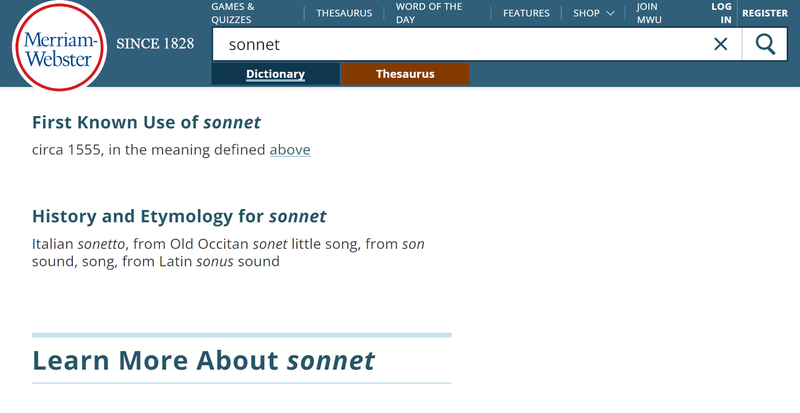
This post, which is now archived on the decentralized Scorum blockchain, is in reply to the "University Program to Remove Sonnets as Part of ‘Decolonising the Curriculum’" that was recently published by The Society of Classical Poets.
By Lannie Brockstein.
May 21st, 2022
First Printing: SCR blockchain.
What responsibility do poets have in relation to the fact that sonnets are not being properly taught at universities, and haven't been properly taught there for decades? The same way that plays are meant to be performed, sonnets (little songs) and all poems are meant to be sung.
Universities strictly have poetry as part of their English department. But poetry should also be part of their Music department. Poetry is an interdisciplinary study, because poetry is the music of words, and words are at their most musical when they are being sung.
In order to become a true poet, not only must an aspiring poet learn how to compose metrical verse (both regular and irregular), but they must also learn how to compose melodies, along with learning how to sing the words of their regular and irregular metrical verse.
Part of learning how to sing, is practicing by means of making silly sounds that have no meaning. It does not require hard work for anybody to learn how to sing, because part of singing perfectly is singing effortlessly. Because it is practice that makes perfect, so long as one is not hurting one's vocal chords when practicing their singing, they are therefore not hurting the ears of others, and thus they are practicing perfectly. Anybody who is talented enough to learn how to compose metrical verse, is also talented enough to learn how to sing their metrical verse.
The same way that a baseball manager does not himself need to be a professional baseball player, but does need to be able to play sandlot baseball, a true poet does not himself need to be a professional singer, but he does need to be able to sing well enough to demonstrate to professional singers how the words of his poems are meant to be sung.
Most people find it easier to practice singing when in the shower or in front of running water from a kitchen sink. That is because breathing in hot steamy air helps to gently relax and open the vocal chords, as does vaping the terpene "alpha pinene" in cannabis and other dried herbs such as mint, sage, and hops at its boiling point of 155°C/311°F.
Of course, this truth about poetry that I have mentioned is not something which anybody who has spent a lifetime heavily investing his ego in calling himself a poet but without his having ever sung the words of his poems, will readily want to properly admit. Nonetheless, the truth is the truth, and regardless of whether or not a person cares to recognize it.
It is easy to complain that some universities have stopped teaching their students about sonnets. It is hard to properly admit that almost all university professors haven't properly taught sonnets and other forms of poetry for decades, if not centuries and since Modernism began.
Anybody who writes metrical verse but does not sing their metrically patterned words is a poet of the deaf or the hard of hearing, and not a poet of those who have normal hearing. Yes, it is commendable for anybody to be inclusive of the deaf or hard of hearing. But that does not mean the definition of what poetry truly is should be watered down or diminished for those who have normal hearing.
Learning how to compose metrical poems is the hard part. Learning how to sing them is the easy part. I hope for The Society of Classical Poets to consider hosting a chat room where classical poets are warmly welcome to regularly practice singing their regularly metrical poems in front of others, and rather than reciting them as though they are nothing more than mere works of prose.
The radio is ablaze with the irregularly metrical poems of free verse poets. In order for classical poetry once again to become part of the mainstream, classical poets must sing their regularly metrical poems, too. For what reason does Shakespeare merit being called "the Bard" if his poems are not meant to be sung, and if he himself did not sing them?
Comments